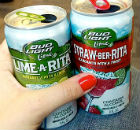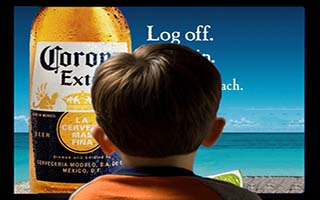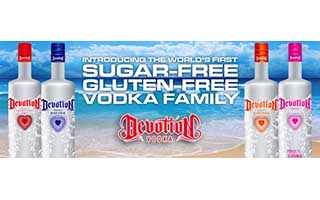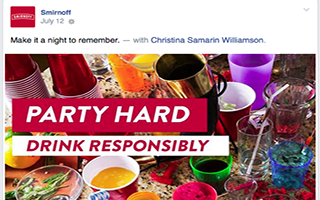End Industry Advertising Self-Regulation
Search
Under self-regulation, the industry writes its own advertising codes, and there are no consequences for violating them. It's time to demand external, third-party regulators to implement and enforce sensible, protective regulations that reduce advertising to youth and prevent promoting excessive consumption.
The industry's codes allow overexposure of youth to alcohol advertising and untruthful health claims, among other concerns. Analysis of 1,800 magazine advertisements revealed that many contain unhealthy messages and images such as sexually objectified women and alcohol consumption associations with weight control. Public health advocates such as the American Academy of Pediatrics urge the U.S. Federal Trade Commission to adopt standards for alcohol advertising, including restrictions on ads in media with audiences that are likely more than 10% underage.
Facebook and other social media sites reach more consumers than TV. Social media platforms offer Big Alcohol the ability to reach smartphone users with targeted ads twice as quickly and user-generated content such as videos. It is this user-generated content that concerns researchers, such as the Australian team that recently expressed concern about how it feeds the culture of excessive drinking. Meanwhile, sites such as Facebook are eager to cash in, setting policies that pander to alcohol advertisers and encourage alcohol consumption through unfettered promotion.
OUR CAMPAIGNS
 |
Stop Alcopops Our campaign seeks to ban alcopop sales entirely. |
 |
Advertising We support strong advertising regulations and enforcement. |
 |
Charge for Harm We support state and federal increases in alcohol taxes. |
 |
State Control & Regulation We support state authority to regulate alcohol sales. |
 |
Point .05 Saves Lives We support state efforts to lower the BAC limit to .05. |
Help us hold Big Alcohol accountable for the harm its products cause.
| GET ACTION ALERTS AND eNEWS |
STAY CONNECTED    |
CONTACT US 24 Belvedere St. San Rafael, CA 94901 415-456-5692 |
SUPPORT US Terms of Service & Privacy Policy |
Copyright © 2026 Alcohol Justice. All Rights Reserved.
Joomla! is Free Software released under the GNU General Public License.





